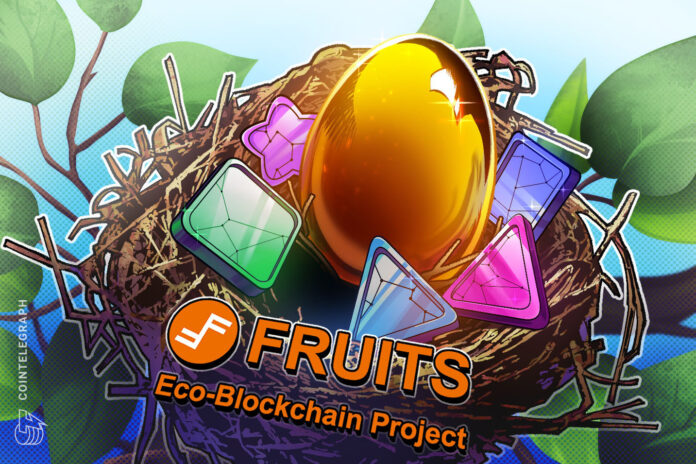The NFT market is continually evolving — and there’s one intriguing trend that’s enhancing their utility even further: tying digital assets to real-world items.
Some applications have been more tongue-in-cheek than others. Charmin got in on the action by transforming toilet rolls into digital art, accompanied by a physical display that could become the centerpiece in the owner’s bathroom.
On the other end of the spectrum, CryptoPunk holders were given the chance to transform their avatars into bespoke Tiffany & Co. pendants, in which a small number of nonfungible tokens were sold that entitled the owner to an exclusive piece of physical jewelry, which sold out in a blink.
Linking NFTs to rare collectibles can also have advantages. Vintage bottles of Japanese whiskey recently made the leap, with tokens verifying authenticity and ownership. Under this model, luxury items can be held in a secure environment, and owners can use their digital assets to redeem them at a later date. This ensures there’s much less chance of accidentally breaking a $75,000 bottle or spontaneously opening it on a Saturday night.
We’ve even seen how nonfungible tokens are being used to spark a discussion about the future of art. Legendary artist Damien Hirst famously created The Currency — a collection of 10,000 pieces. Owners were given a choice: they could either keep the artwork as an NFT, or exchange it for a physical painting. There was a catch, however: choosing the crypto collectible meant its real-world counterpart would be destroyed forever. Overall, 4,851 were (literally) burned.
Going for gold
Now, an NFT game is taking this concept to a whole new level, and offering a twist on the play-to-earn genre. The Fruits Eco-Blockchain Project says it plans to give gamers a chance to win a physical golden egg when Golden Egg Wonderland launches in Q3 of 2023. The game and all assets incorporated in it will be hosted on the Fruits’ native blockchain. Explaining its rationale, the game’s founders pointed to how the value of gold has risen considerably over the past 12 months, driven by concerns over inflation and quantitative easing. There’s also some literary inspiration, as it’s a nod to the goose that laid golden eggs in Aesop’s famous fable.
Golden Egg Wonderland operates on a simple yet intriguing mechanism involving virtual birds and their ability to lay nonfungible tokens (NFTs) in the form of eggs, which in some occasions, are golden. Users begin their journey by acquiring birds and entering the game, where the adventure unfolds. The primary objective revolves around breeding the birds based on their properties and characteristics, a process that yields NFT eggs as a result. The true excitement stems from the potential of these eggs to be gold, which subsequently can be exchanged for real-life golden eggs marked with identical serial numbers. This functionality embeds a unique “gold standard” within the game, and introduces the revolutionary play-for-gold (P4G) model.

Source: Fruits
What’s more, the game relies on a powerful AI structure in the background, which helps with the distribution of golden eggs. The game is linked to real gold, and the gold generated in the real world is traceable on the Fruits Blockchain. When the generated gold is recorded on the Fruits blockchain, the AI model automatically matches and links the amount of numbered gold and the number of gold eggs generated in the game. This ensures transparency of the amount of gold held by the management team and provides a high level of security, as the real gold eggs and the in-game gold eggs generated are linked in real-time.

Source: Fruits
Fruits has already partnered with a CIP plant (gold processing plant) and gold smelter in Tanzania to bring this cutting-edge concept to life. In addition, users can check their gold storage status through traceability, a 24-hour live feed, and audits by external agencies. Tanzania also plays a central role in Fruits’ goal to redefine charitable efforts globally. Aside from utilizing a local gold smelting plant, Fruits also launched one of its local crypto exchanges there. The Fruits Gold Exchange Global (FGXG) crypto exchange was built with the aim to contribute to financial inclusion by enabling swaps from FRTS, the native token of the Fruits Eco-Blockchain Project, and other funds into assets, such as cash.
The gold standard
Gold is heavy and not easily transportable — and the Fruits Eco-Blockchain Project says it will offer a secure environment where precious gold can be stored. This also enables its digital counterpart to be traded based on the underlying value of the real-world asset.
The Fruits team takes pride in creating an environmentally friendly and sustainable project, setting itself apart from other play-to-earn games based on tokenomics that aren’t viable in the long term. Instead, with the introduction of the P4G model, Fruits brings in a tangible mechanism that allows players the chance to earn gold-backed NFTs. What’s more, the founders also have the ambition to revitalize global charity and bring social finance to the masses with the help of athletes and celebrities around the world.
With a base blockchain that’s been under development since 2018, the Fruits Eco-Blockchain Project believes its mechanisms can comply with ever-tightening regulations worldwide, all while delivering an immersive game that rewards its players.
Disclaimer. Cointelegraph does not endorse any content or product on this page. While we aim at providing you with all important information that we could obtain in this sponsored article, readers should do their own research before taking any actions related to the company and carry full responsibility for their decisions, nor can this article be considered as investment advice.
Hits: 0












